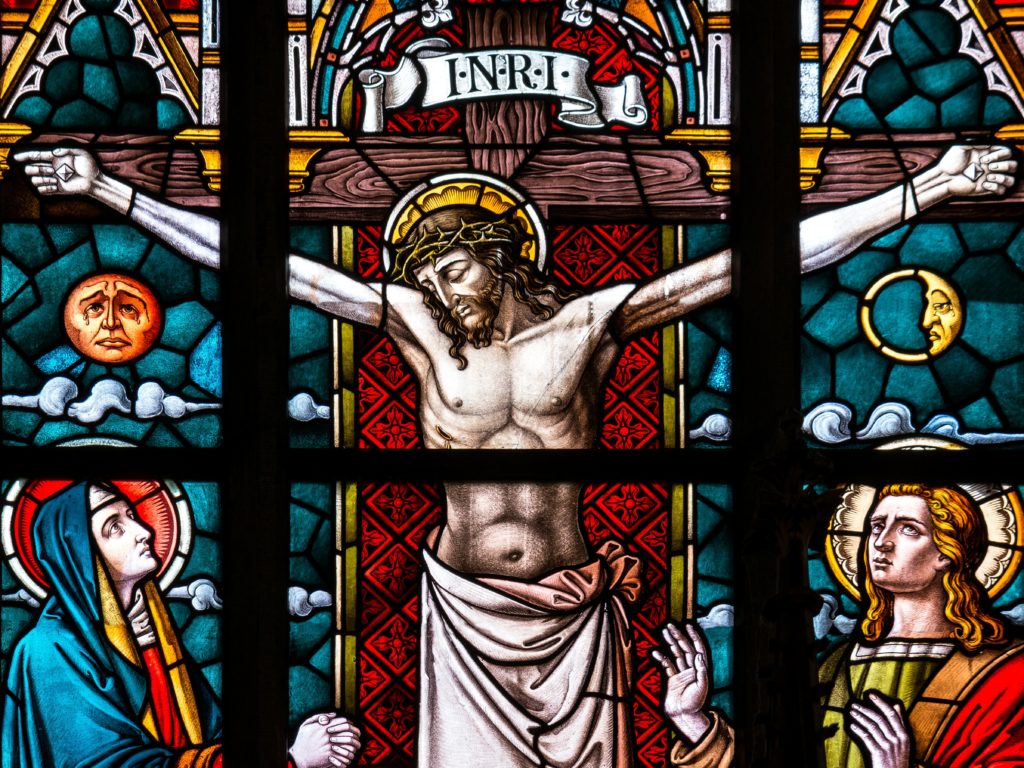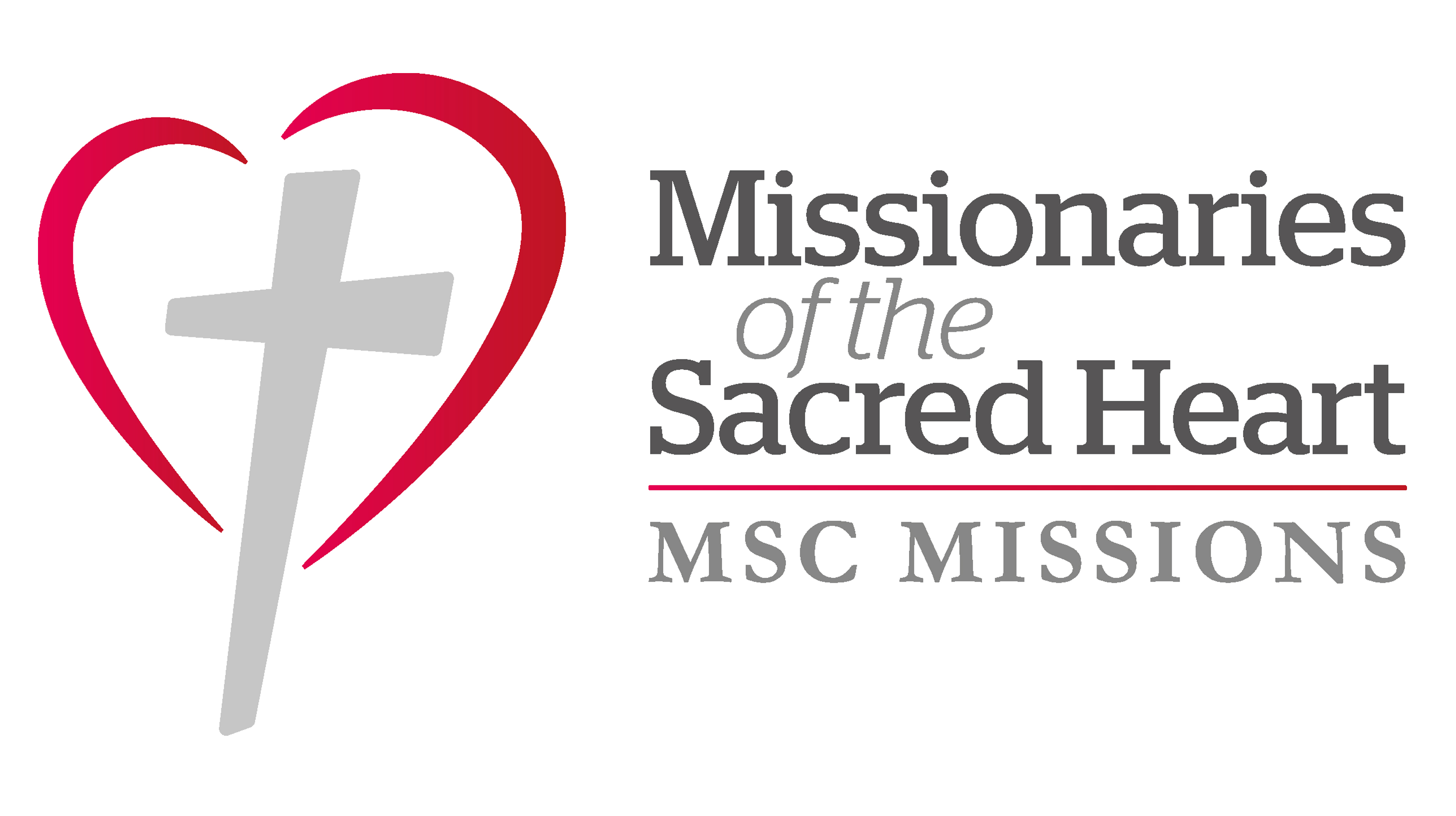May 12, 2020
Gospel Reflection
“I shall ask the Father, and he will give you another advocate”
The Gospel (John 14:15-21)

Writing to the Romans (Romans 8:14) Paul says:
“All who are led by the Spirit of God are children of God”.
The Sunday readings today stress the part played by the Holy Spirit in the lives of individual believers and of the Christian community. It is by the laying on of the hands of the Apostles that the Holy Spirit came on the believers in the Samaritan town converted by Philip. It is the Spirit of the risen Christ that gave confidence to the believers during their trials, referred to in the letter of Peter. It is the Holy Spirit that Jesus promises to send on his followers as a second advocate, defender, comforter. In our own day the Holy Spirit gives the certainty of faith in Jesus to the individual believer, belief in a world unseen. The Holy Spirit gives consolation of soul, and the joy and peace which Jesus promised before he left. The Holy Spirit guides us as believers to live in keeping with the Gospel message, with purity of heart and with a religious attitude that takes the directions for one’s life from heaven, from Jesus, from the Church, rather than from a worldly secular attitude that does not believe in another world or accept direction from it.
Another thought worthy of reflection arising from today’s Gospel reading is the opposition and contest that there was, and always will be, between Jesus himself, his followers, and the other forces which the Gospel calls “the world”, that is those who were not ready to accept his person or his message, and who maintained, or will maintain, that they had been victorious over Jesus, that he and all he stood for were conquered by his death on the cross. Jesus assured his followers that the Paraclete, that Advocate, the Holy Spirit, that he was to send would convince his followers (and convict “the world”) that the contrary was the case. They should take courage; Jesus had conquered the world. Those forces working against Jesus and his work are still active.
We need not enter in any further detail into this question here, but to recall that in this continuing contest, Jesus and his Father are also active through the Holy Spirit, the Advocate and Comforter. However, we may mention that an obvious example of the ongoing contest between the forces contrary to Jesus is active atheism, and the movement “Atheist Ireland” actively engaged in an effort to destroy belief in God, with special emphasis on vilifying the Catholic Church, attempting to remove any influence of Catholic, that is Christian, religion from public life and the teaching of religion inn primary schools. Today’s Gospel and liturgical readings call for a response on at least two points, namely to recall Jesus’ promise of the Holy Spirit that gives confidence to the conscience of each believer that he, Jesus, has “conquered the world”, all opposing forces, and gives confidence and peace in believing, and secondly not to forget the advice of St Peter in the Second reading today: have a good knowledge of your religion
“Always have your answer ready for people who ask you the reason for the hope that is in you; but give it with courtesy and respect”.
Fr Martin McNamara MSC
Apr 16, 2020
Gospel Reflection
“Blessed are those who have not seen and yet have come to believe”
The Gospel (John 20:19-31)

I once heard a playwright being asked what extra experience he would like to have had in life. His reply was: “I would like to have met Jesus”. One can only surmise what encounter, if any, a playwright, a politician or any other would have had with Jesus, and what, if any, Jesus’ reply would have been to their questions. Matters are different with regard to faith. Jesus is not a person of yesterday, or of another era. He is ever present as a person and influence.
Let’s go back for a moment to that scene in the upper room, with doors closed. Jesus accepts Thomas’s profession of faith. Thomas has seen the risen Saviour and believed. But, as
if casting a glance forward to believers of all ages, in all places, into this twenty-first century, and this particular year, Jesus declares blessed all those who will believe in him down through all the ages. They will not have seen with their physical eyes, but will have done so through the eyes of faith. In his parting discourse at the Last Supper Jesus looked forward in prayer to the same course of faith history, and prays to the Father for all believers (John 17:20):
“I ask not only on behalf of these (my disciples now present), but also on behalf of those who will believe in me through their word, that they may all be one”.
For the earlier Church, and for later ages, Jesus is near in his empowering, consoling and inspiring presence. As we have seen in the first reading, Peter is made to address early Christians suffering for their faith in Jesus as follows: “Although you have not seen him, you love him; and even though you do not see him now, you believe in him and rejoice with an indescribable and glorious joy” (1 Peter 1:8).
The imitation of Christ is central to the New Testament and to Christianity. Imitation in this sense also implies a personal acquaintance with Christ. It s nicely put in a poem transmitted in Irish folk tradition, as part of an instruction to young people how to prepare for life: “Young person, at the beginning of your life, pay good attention to my teaching. Before you get too old come to a personal acquaintance (aithne) with Christ” – not just knowledge of Christ (eolas), but a personal acquaintance with (aithne), through faith, an awareness of that the presence and prayer which Jesus spoke about to Thomas makes possible. Blessed are they who have not seen and yet have come to believe
Fr Martin McNamara MSC
Mar 27, 2020

Yes there is fear.
Yes there is isolation.
Yes there is panic buying.
Yes there is sickness.
Yes there is even death.
But,
They say that in Wuhan after so many years of noise
You can hear the birds again.
They say that after just a few weeks of quiet
The sky is no longer thick with fumes
But blue and grey and clear.
They say that in the streets of Assisi
People are singing to each other
across the empty squares,
keeping their windows open
so that those who are alone
may hear the sounds of family around them.
They say that a hotel in the West of Ireland
Is offering free meals and delivery to the housebound.
Today a young woman I know
is busy spreading fliers with her number
through the neighbourhood
So that the elders may have someone to call on.
Today Churches, Synagogues, Mosques and Temples
are preparing to welcome
and shelter the homeless, the sick, the weary
All over the world people are slowing down and reflecting
All over the world people are looking at their neighbours in a new way
All over the world people are waking up to a new reality
To how big we really are.
To how little control we really have.
To what really matters.
To Love.
So we pray and we remember that
Yes there is fear.
But there does not have to be hate.
Yes there is isolation.
But there does not have to be loneliness.
Yes there is panic buying.
But there does not have to be meanness.
Yes there is sickness.
But there does not have to be disease of the soul
Yes there is even death.
But there can always be a rebirth of love.
Wake to the choices you make as to how to live now.
Today, breathe.
Listen, behind the factory noises of your panic
The birds are singing again
The sky is clearing,
Spring is coming,
And we are always encompassed by Love.
Open the windows of your soul
And though you may not be able
to touch across the empty square,
Sing.
Brother Richard Hendrick, 13 March 2020
Source: Catholic Bishops
Mar 19, 2020

Like others in society, our parishes have been introducing restrictions to help keep people safe, especially those who are most vulnerable. I invite you to join me today in praying the beautiful prayer of Saint Patrick, known as his “breastplate” prayer, in which he invited Christ to surround him with love and protection:
Christ with me, Christ before me,
Christ behind me, Christ within me,
Christ beneath me, Christ above me,
Christ at my right, Christ at my left,
Christ in the heart of everyone who thinks of me,
Christ in the mouth of everyone who speaks to me,
Christ in every eye that sees me,
Christ in every ear that hears me.
The coming weeks and months are going to bring challenges and uncertainty for all of us, as we are reminded of the fragility of human life and of our dependence on one another and on God.
This is a time for an outpouring of the works of mercy towards the sick and vulnerable, and for a spirit of generosity and self-sacrifice, compassion and charity in Ireland, and across the world. It’s hard for people not to be alarmed, but it’s worth remembering that we are never completely isolated or alone.
This is also a time for prayer. Pray for the virtues of patience and perseverance and for the composure to overcome any temptation to despair. Do your best to spread calmness – not panic; serenity – not turbulence; solidarity – not selfishness. Reach out to neighbours and relatives who may feel troubled or alone. Even a simple phone call can make a huge difference. Work to ensure that hope and compassion will prevail.
In turning towards God for protection, as Saint Patrick did, I ask for your prayers in particular for our brave and selfless health workers and for the medical scientists who are searching for a vaccine and better treatments. Pray that government and public health authorities can make wise judgements and decisions about how to limit the impact of the virus, especially on the most vulnerable.
In Ireland we have a strong tradition that God is at our side in time of trouble. It remains important to keep reminding ourselves and others in the coming days that we are never completely isolated: Christ is beside us, before us, behind us, on our right and on our left, beneath us and above us.
Saint Patrick, apostle of Ireland, pray for us.
Dia idir sinn agus an t-olc. – “God between us and all harm”.
Archbishop Eamon Martin
Jul 20, 2019
Gospel Reflection
Listening to and living the mystery of Christ and the Church
The Gospel (Luke 10:38-42)

Martha welcomed Jesus into her house. Mary has chosen the better part. This is a charming narrative on the hospitality offered to Jesus by Martha, sister of Mary. We are not told what Mary and Jesus were speaking about, but we can presume it concerned the kingdom of God. Martha complained that Mary was not helping her. Part of Jesus’ reply, that Mary had chosen the better part, has appeared harsh to many. What Jesus most probably said is that only one thing is necessary, and Mary has made the right and better choice. This saying is the highlight of the narrative. This is an invitation to us to reflect on the joy that should be ours as we reflect on the central truths of our religion, the mystery of Christ and of his Church.
“Christ is with you, the hope of glory”
Today’s readings invite us to reflect on the dignity that is ours in living in the age of the fulfilment of the promises and the joy that this should bring, joy even in the sufferings that go with Christian living. Paul is happy, joyful, in his mission to preach the word of the Gospel, the good news that the mystery has been revealed. Jesus rejoiced that the secrets, the mystery, hidden for past ages had been revealed by the Father through him, to the “little ones” rather than to the wise and understanding (Matthew 11:25-30). For this, Jesus rejoiced in the Holy Spirit (Luke 10:21-22), just as Paul later would. The mystery was God’s saving plan through Christ, which could be variously expressed. For the epistle to the Ephesians it was God’s plan for the fullness of time, to unite all things in Christ, things in heaven and things on earth (Ephesians 1:9-10). For Paul to the Colossians it was: “Christ is with you, the hope of glory”. With Christ in the Church there is the glory of God’s presence, and the hope that it brings for here and eternity.
The Church continues to use this term “mystery” and its riches of meaning to express her belief in her own nature and in the sacraments. The first chapter of the Dogmatic Constitution on the Church is headed: “The mystery of the Church”. As Pope Paul VI explained in his opening address at the second session of the Vatican Council (1961); “The Church is a mystery. It is a reality imbued with the hidden presence of God. It lies, therefore, within the very nature of the Church to be open to new and greater exploration.” The sacraments can be called mysteries, since the power of God is present in them, continuing the initial mystery of Christ and the foundation of the Church. St Ambrose composed discourses on sacraments which he described as “On the Mysteries”. The Eucharist is the mystery par excellence and in the Roman Missal (visible in particular in the revised English translation), mention is made of “these mysteries” in relation to it. The mystery of Christ is thus being continually proclaimed by word and sacrament. In the words of Christ addressed to Martha, “only one thing is needful”, attention to the word of God brought to us by Jesus, attention to this whether we are reflective like Mary, Martha’s sister, or busy like Martha herself.
Fr Martin McNamara MSC
Jun 15, 2019
Gospel Reflection
Mystery of the Blessed Trinity and Mystery of the Church
The Gospel (John 16:12-15):
Everything the Father has is mine; all the Spirit tells you is taken from what is mine.

This reading from Christ’s Farewell Discourse is chosen for this feast of the Blessed Trinity because of the mention by Christ (the Son) of the Father and the Holy Spirit. Today we celebrate the feast of the Blessed Trinity, or in the formal title, “The Solemnity of the Holy Trinity”. The Trinity is something of an abstraction. We rarely, if ever, hear of devotion to the Blessed Trinity. The Trinity is recognized as the greatest and deepest of the Christian mysteries. It took centuries, with errors, heresies, and bad formulations, for the Church to arrive at the formulation of, or belief in, the Blessed Trinity as we have it today. Belief in the Trinity is belief in one God in three divine persons. As formulated in the latest Catechism of the Catholic Church (paragraphs 253-260), the Trinity is One. We do not confess three Gods, but one God in three persons, the “consubstantial Trinity”. The divine persons do not share the one divinity among themselves, but each of them is God, whole and entire. The divine persons are really distinct from one another.
So much for the theology of belief in Father, Son, and Holy Spirit, as the Trinity, the one true God. Such theology does not necessarily make for devotion, or a greater understanding of the mystery of the Trinity. This great mystery of Father, Son, and Holy Spirit reveals the innermost nature and life of God to us: God as love, as saviour, as unity. This mystery of the Blessed Trinity was revealed to us as source and model of our Christian life. In his farewell discourse at the Last Supper, Jesus prayed to his Father for his followers, in all ages to come: “I ask not only on behalf of these, but also on behalf of those who will believe in me through their word, that they may all be one. As you, Father, are in me and I am in you, may they also be one in us, so that the world may believe that you have sent me. The glory that you have given me, I have given them, so that they may be one, as we are one, … that the world may know that you have sent me and have loved them even as you have loved me” (John 17:20-24). This is practically what Paul says in writing to the Romans, summarised in the heading to today’s second reading: We go “to God through Christ, in the love poured out by the Holy Spirit”. The Holy Spirit in the hearts of believers makes them, makes us, aware of our dignity as children of God, called and enabled to live according to the pattern of the inner life of God himself, as revealed by Jesus, and continued in the mystery of the Church. The Church will never be properly understood unless viewed as a mystery, the Body of Christ, under the guidance of the Holy Spirit called to live in accord with that deep mystery which is the Blessed Trinity, and as a witness on earth to the living God, the source of true life.
Fr Martin McNamara MSC



